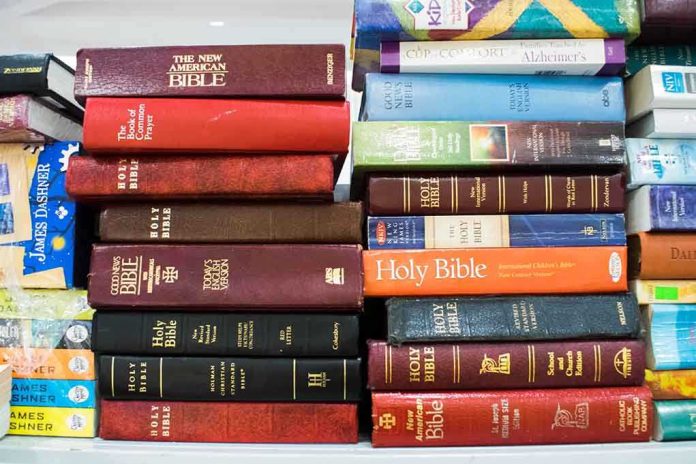
A majority of Americans support having religious chaplains in public schools, signaling a significant shift in attitudes toward faith in education despite ongoing constitutional debates about the separation of church and state.
Key Takeaways
- 58% of American adults support religious chaplains providing support in public schools, while 41% oppose their presence
- Most Americans (55%) disagree with teachers leading a class in prayer, and 60% oppose a mandatory religious hour in schools
- Republicans favor more parental influence in education and are more likely than Democrats to support religious elements in schools
- Texas became the first state to allow school chaplains under a 2023 law, with Florida and Louisiana passing similar legislation in 2024
- The debate follows a Supreme Court ruling against public funds going directly to religious charter schools
Strong Support for Religious Chaplains Despite Divided Views on Prayer
A new poll from the Associated Press and NORC Center for Public Affairs Research reveals that a strong majority of Americans—58%—support having religious chaplains in public schools. This significant finding comes amid ongoing national debates about the role of faith in education and the constitutional boundaries between church and state. The poll, which surveyed 1,158 adults nationwide from June 5 to June 9, indicates that religious counselors are viewed more favorably than other religious practices in education, with a margin of error of plus or minus four percentage points.
While Americans broadly support chaplains, they remain divided on other religious expressions in schools. A majority (55%) disagree with teachers leading classes in prayer, and 60% oppose mandatory religious hours for prayer or religious reading. These findings highlight the nuanced way Americans approach the intersection of faith and public education, embracing certain forms of religious support while maintaining boundaries around more directive religious practices.
Majority of Americans support religious chaplains in public schools: Poll https://t.co/K6fwExUq0A
— John Solomon (@jsolomonReports) June 27, 2025
Political Divides and Parental Rights in Education
The survey reveals sharp political differences in attitudes toward religion in schools. Republicans consistently show stronger support than Democrats for religious chaplains, teacher-led prayers, and prayer in classrooms. This partisan divide extends to views on educational influence, with Republicans generally favoring increased parental control while Democrats prefer greater teacher influence. These differences align with President Trump’s long-standing emphasis on parental rights in education and the growing conservative movement to return educational decision-making to families.
“Attitudes about the role of religion in school are often shared across religious groups, especially White evangelical Christians and non-White Protestants, even though they have different partisan alignments,” notes the report from the NORC.
Many Americans feel parents currently have “too little” influence on their children’s education, while believing the federal government is excessively involved in public schooling. About half of the respondents think teachers also have insufficient influence, while state governments are seen as having too much control. These findings reflect growing frustration with bureaucratic educational systems and support for the conservative push to strengthen parental authority in schools.
State Legislation and Constitutional Challenges
The chaplain debate has moved beyond polling into practical policy, with several states implementing laws to permit religious chaplains in public schools. Texas led this movement in 2023, establishing legislation that has prompted over 1,200 school districts to review policies regarding chaplains as employees or volunteers. Florida and Louisiana followed with similar legislation in 2024, and at least 30 bills across 16 states have proposed allowing chaplains in public schools, reflecting the growing momentum behind religious presence in education.
“More people oppose than support policies that would allow religious schools to become tax-funded public charter schools, but there is about equal support and opposition for a policy that would allow school vouchers to be used at private or religious schools,” the report from the NORC states.
These legislative efforts come in the wake of a Supreme Court ruling against directing public funds to religious charter schools, which has intensified debates about religion in taxpayer-funded institutions. The controversy surrounding the exclusion of St. Isidore Catholic School from Oklahoma’s charter school initiative has been viewed by many conservatives as a violation of the Free Exercise Clause of the Constitution. President Trump has consistently advocated for religious freedom in education and strengthening parental rights against bureaucratic overreach.
The Future of Faith in American Education
The strong public support for religious chaplains in schools suggests a potential shift in Americans’ interpretation of the separation of church and state. Rather than demanding rigid secularism, many citizens appear to favor a balanced approach that allows for supportive religious presence while avoiding mandatory religious instruction. This nuanced position indicates a possible path forward for faith in education that respects constitutional boundaries while acknowledging the importance of spiritual support for students.
The poll results arrive amid broader legislative efforts to reaffirm America’s religious heritage in public education, including initiatives in Louisiana and Texas to display the Ten Commandments in schools. These movements, along with the chaplain programs, represent a growing conservative push to restore traditional values in education while respecting the diverse religious backgrounds of American students. As these policies continue to develop, they will likely shape the ongoing national conversation about the proper role of faith in public education.



